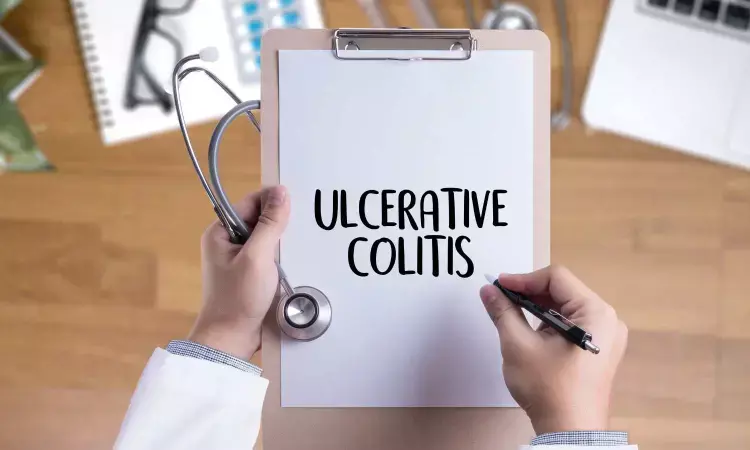- Home
- Medical news & Guidelines
- Anesthesiology
- Cardiology and CTVS
- Critical Care
- Dentistry
- Dermatology
- Diabetes and Endocrinology
- ENT
- Gastroenterology
- Medicine
- Nephrology
- Neurology
- Obstretics-Gynaecology
- Oncology
- Ophthalmology
- Orthopaedics
- Pediatrics-Neonatology
- Psychiatry
- Pulmonology
- Radiology
- Surgery
- Urology
- Laboratory Medicine
- Diet
- Nursing
- Paramedical
- Physiotherapy
- Health news
- Fact Check
- Bone Health Fact Check
- Brain Health Fact Check
- Cancer Related Fact Check
- Child Care Fact Check
- Dental and oral health fact check
- Diabetes and metabolic health fact check
- Diet and Nutrition Fact Check
- Eye and ENT Care Fact Check
- Fitness fact check
- Gut health fact check
- Heart health fact check
- Kidney health fact check
- Medical education fact check
- Men's health fact check
- Respiratory fact check
- Skin and hair care fact check
- Vaccine and Immunization fact check
- Women's health fact check
- AYUSH
- State News
- Andaman and Nicobar Islands
- Andhra Pradesh
- Arunachal Pradesh
- Assam
- Bihar
- Chandigarh
- Chattisgarh
- Dadra and Nagar Haveli
- Daman and Diu
- Delhi
- Goa
- Gujarat
- Haryana
- Himachal Pradesh
- Jammu & Kashmir
- Jharkhand
- Karnataka
- Kerala
- Ladakh
- Lakshadweep
- Madhya Pradesh
- Maharashtra
- Manipur
- Meghalaya
- Mizoram
- Nagaland
- Odisha
- Puducherry
- Punjab
- Rajasthan
- Sikkim
- Tamil Nadu
- Telangana
- Tripura
- Uttar Pradesh
- Uttrakhand
- West Bengal
- Medical Education
- Industry
Researchers develop probiotic to ameliorate ulcerative colitis

Researchers from the Institute of Process Engineering (IPE) of the Chinese Academy of Sciences have developed a probiotic-based therapeutic that synergistically restores intestinal redox and microbiota homeostasis. This therapeutic effectively relieved inflammation and reduced colonic damage in mouse and non-human primate (NHP) models of colitis. The study was published in Cell Host & Microbe.
Probiotics are potential treatments for ulcerative colitis (UC), but their efficacy is frequently compromised by gastrointestinal conditions that limit adhesion and activity. Moreover, the complicated pathological environment of inflamed tissue also implies the presence of other pathogenic factors.
To address these issues, researchers, employing machine learning and bioinformatics analyses, identified the Lactobacillus genus as a suitable candidate for modulating the gut microbiota, and pinpointed oxidative stress as a pivotal pathogenic factor for targeted intervention.
For verification, researchers collected and analyzed fecal samples from a cohort of healthy donors and UC patients. The results showed a decreased prevalence of Lactobacillus and increased oxidative stress in UC patients.
"Further considering inflammation severity, we discovered correlations between any two aspects of Lactobacillus abundance, 8-hydroxy-2-deoxyguanosine levels, and C-reactive protein values in UC patients, which revealed the close association of these two aspects in UC exacerbation," said Prof. CUI Yimin from Peking University First Hospital, one of the corresponding authors.
These findings indicated that, beyond delivering adequate viable Lactobacillus, endowing Lactobacillus with the function of scavenging reactive oxygen species (ROS) could further improve UC treatment. Considering that selenium is a nutritional trace element conferring antioxidant effects, researchers proposed that the codelivery of selenium and Lactobacillus could fulfill the synergistic restoration of intestinal redox-microbiota homeostasis.
"We developed a new method to in situ grow selenium dots which are embedded in the pericellular film surrounding the Lactobacillus casei (Lac) cell wall. The resulting Se-fLac not only endowed Lac cells with ultrahigh ROS scavenging activity, but also enhanced gastric acid resistance and intestinal mucoadhesion of Lac cells after oral administration," said Prof. MA Guanghui from IPE.
At the lesion site, Se-fLac prominently scavenged ROS and had the tendency to modulate gut microbiota, and these two aspects were further observed with a potentially mutual benefit.
"To validate the therapeutic efficacy of Se-fLac, we compared it with 5-aminosalicylic acid treatment, VSL#3 supplements, and their combination. Se-fLac significantly outperformed these three counterparts in all therapeutic indices," said Prof. WEI Wei from IPE.
Although the UC mouse models have been widely utilized to examine therapeutic efficacies, these mouse models might fail to accurately simulate the anatomic structures and physiological functions of the gastrointestinal tract, as well as pathological features of UC in humans.
"This motivated us to establish an NHP model to bridge mouse- and human-based investigations of Se-fLac, and the potent therapeutic efficacies highlighted the strong translational potential of Se-fLac to develop clinically relevant UC treatments," said Prof. WEI.
Reference:
Peilin Guo, Wenjing Wang, Qian Xiang, Chao Pan, Yefeng Qiu, Tingting Li, Dongfang Wang, Jian Ouyang, Rongrong Jia, Min Shi, Yugang Wang, Junxia Li, Jiale Zou, Yuan Zhong, Jiawei Zhao, Diwei Zheng, Yimin Cui, Guanghui Ma, Wei Wei, Engineered probiotic ameliorates ulcerative colitis by restoring gut microbiota and redox homeostasis, Cell Host & Microbe, 2024, https://doi.org/10.1016/j.chom.2024.07.028.
Dr Kamal Kant Kohli-MBBS, DTCD- a chest specialist with more than 30 years of practice and a flair for writing clinical articles, Dr Kamal Kant Kohli joined Medical Dialogues as a Chief Editor of Medical News. Besides writing articles, as an editor, he proofreads and verifies all the medical content published on Medical Dialogues including those coming from journals, studies,medical conferences,guidelines etc. Email: drkohli@medicaldialogues.in. Contact no. 011-43720751


